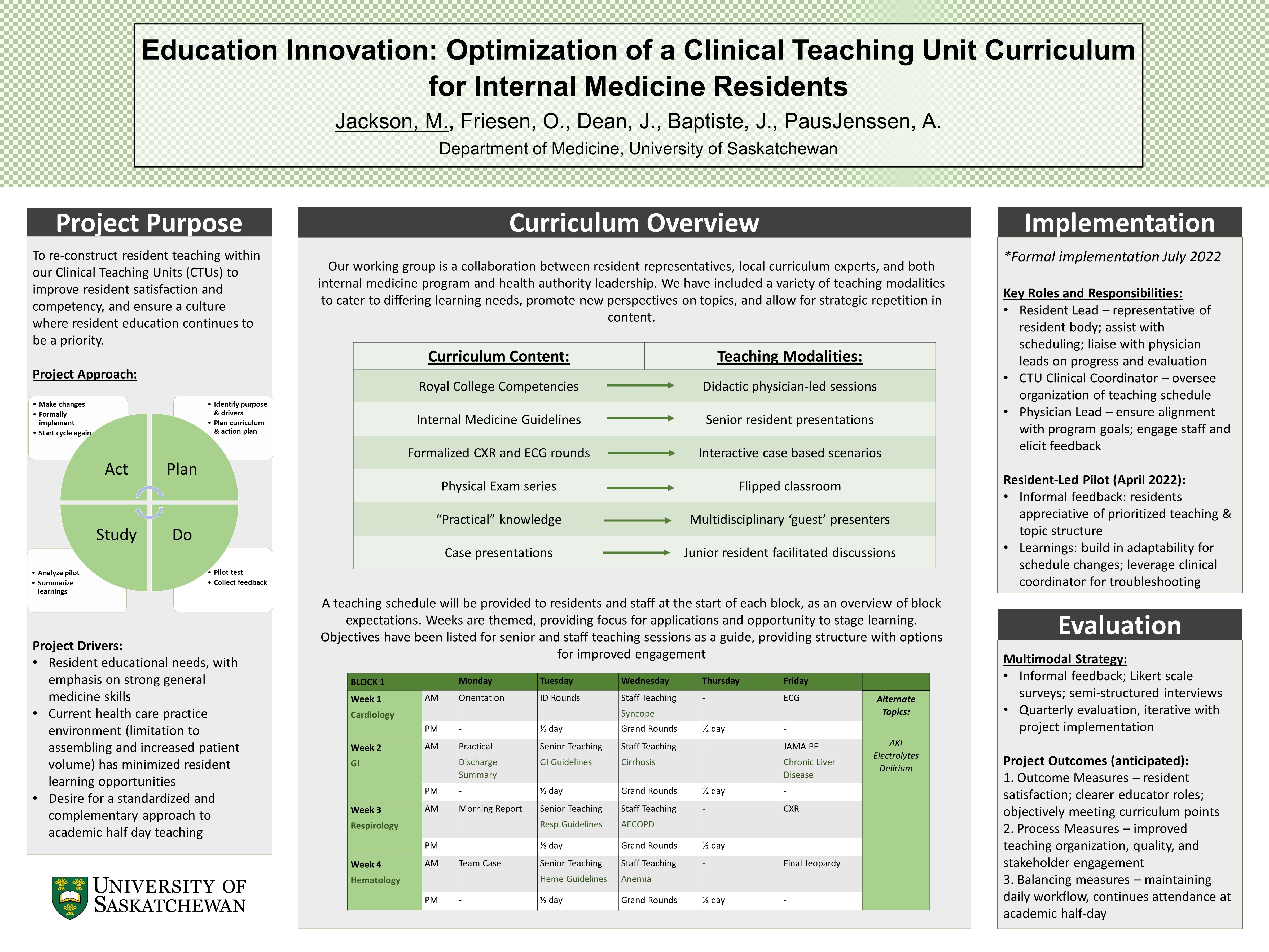
B1.6: Education innovation: Optimization of a Clinical Teaching Unit curriculum for Internal Medicine Residents
Meghan Jackson, Olivia Friesen, Jonathan Dean, Jessie Baptiste, Anne PausJenssen
Purpose: As COVID-19 has driven adaptation and innovation across clinical practice, the same has stood true for resident education. With reduced in-person interactions, gaps have emerged compared with traditional teaching mediums. As a first step within the internal medicine program, a quality improvement project is planned to align our Clinical Teaching Unit (CTU) curriculum with our formal academic half day curriculum. The drivers of this project are resident educational needs, the current health care practice environment, and opportunity to develop a standardized, robust, and complementary approach between the two main structured learning environments.
Methods/Approach: Our working group includes resident representatives, local curriculum experts, and both internal medicine program and health authority leadership. Our framework was founded on Royal College internal medicine competencies, and overlayed with objectives pertinent to inpatient medicine. We propose a multi-modal approach, including didactic teaching from attendings and allied health providers, guideline review by senior residents, case presentations by junior residents, a flipped classroom approach to physical exam with simulated skills practice, ECG and chest x-ray rounds, and knowledge application through an interactive game format. Most content delivery will occur via virtual platforms.
Results/Impact: Initiative impact is predicted across many perspectives. We anticipate growth in residents’ knowledge and increased satisfaction with teaching. Attendings may experience clearer expectations and improved program support for their educator roles. Ultimately, the residency program merits from improved teaching organization, quality, and stakeholder engagement. Although an evaluation framework is not finalized, we anticipate using informal feedback, Likert scale surveys, and semi-structured interviews. Evaluation will be concurrent with project implementation, allowing for an iterative process and improved outcomes.
Conclusion: We are committed to re-constructing resident teaching within our CTUs, which has potential to yield increased resident competency and satisfaction, as well as create sustained cultural change where resident education continues to be a priority.
